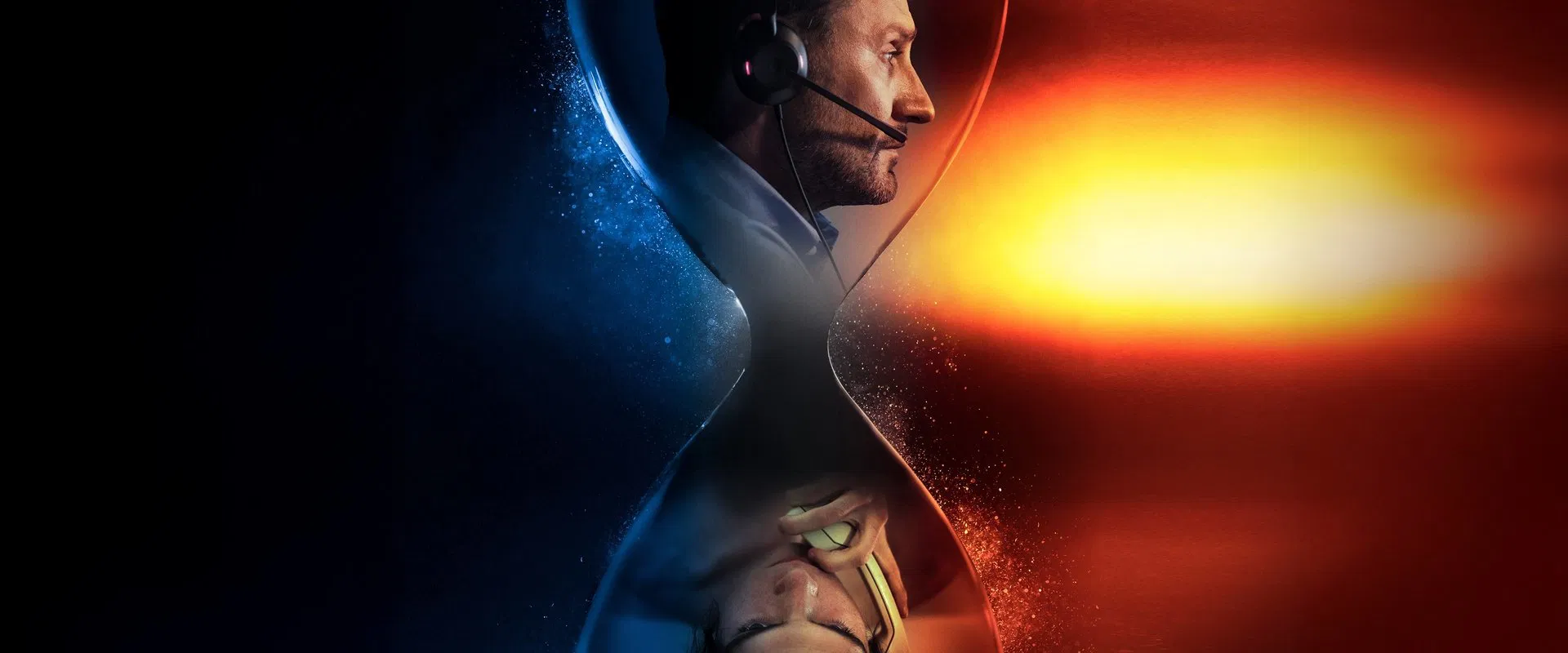“Lifeline” is the kind of taut, haunted psychological drama that feels like it’s been mistakenly shipped to the Science Fiction shelf by a jittery intern, where it sits in the company of time-travelers and androids, looking around, appalled at the company it keeps. The film, directed by Feras Alfuqaha, has the brooding nerve to face the black and blue marks left by trauma, personal and societal, and invites you to press your thumb to the bruise. To call it science fiction is to miss the point with the earnestness only a certain kind of literalist can muster. The tricks with reality, disorienting, elliptical, aren’t flights to the moon but dives into a mind coming apart, or maybe clawing for unity in the first place. “Lifeline” wants not just to test its protagonist, Steven Thomas (played with a wonderful, agitated delicacy by Josh Stewart), but to prod at the audience’s own nerves, the little lingering doubts and regrets we all ferry around. There’s a current of self-examination running through this film that curls right back into the viewer’s lap, whether we like it or not.
Steven, a psychiatrist resigned to the graveyard shift of a hotline on New Year’s Eve, fittingly, as the world waits to tally up regrets and resolutions, receives a call from his younger self. This isn’t science fiction, it’s trauma fiction: the persistent return of the injured earlier self, phoning in from the bottom of a well. What begins as a routine, if grim, shift documenting the endless failures of human connection, soon pitches Steven not only into the recurring nightmare of trying to save desperate strangers, but also into a trap of his own design. The film boxes him in, call by call, memory by memory, as reminders of abuse, loss, and roads almost taken pile up and press him further inward. It’s one hell of a parlor trick, forget the supernatural, this is the supernatural that’s been lurking in plain sight all along.
Alfuqaha has a feel for atmosphere. The visual world of “Lifeline” throbs with dread: cramped offices serve as concrete echoes of the psychic prisons the film is concerned with. Even the score tiptoes around the action, the kind of music that crawls up your spine and hides. Stewart’s Steven is brittle, unguarded, in him, there is the peculiar energy of exhaustion: as if everything he’s endured has made him at once porous and unyielding. Charlene Amoia, as Steven’s wife Vivian, aches with the things that go unsaid, and Luke Benward’s Andrew is a memory written in fading ink, a reminder that each present moment contains all the past moments that went wrong.
There’s an admirable refusal to hurry. Some audiences may grumble at the pace, but the languor is a strategy, it’s what gives the film heft. Alfuqaha understands that trauma is not so much an event as a protracted, sticky state. The film leaves us with the shrieks and whispers of the psyche, refusing to give us clean closure. Its explorations of suicide, regret, and estrangement from one’s own life all have the dirty-fingernail realism that makes you less comfortable, not more. When the film dabbles in the surreal, flickering lights, seismic shudders, it’s not for effect, but a glancing blow at the truth that the mind in pain finds its own way to warp reality. The supernatural in “Lifeline” is no more than the natural gone mad.
Now, about that ending, spoilers, yes; the spell can’t be broken otherwise. The final act is a gut punch so deftly orchestrated that the theater hushes in its aftermath. We come to see that Steven is not dead; he lies dreaming in a coma, dangling between two abysses, loss and oblivion. His wife has moved on, the future he imagined, a son, a home, a fragile peace, is nothing but a trick of the mind, a desperate story the psyche tells itself as anaesthesia against absolute darkness. The shattering detail: a memoir that stutters out at chapter five, where the real story ends, the rest wish-fulfillment or hallucination scrawled across the void. “Lifeline” makes plain that trauma tricks and fragments the brain as surely as any science-fiction wormhole ever could. But the film doesn’t give you the grace of watching from above; it makes you tumble through those falling corridors yourself.
Regret and the urge for redemption shiver through the movie like a raw nerve exposed. “Lifeline” refuses to explain away or tidy up, the plot twists don’t turn into bows for easy unwrapping by anyone hungry for uplift. Some may want a cleaner narrative, a placeholder for hope, but Alfuqaha’s persistence in the shadier, more ambiguous alleyways of the soul is precisely what sets the film apart. “Lifeline” doesn’t moralize or offer therapy; it looks into the chasm and asks whether any of us could really walk away untouched.
If movies are the dreams we pay to have, then “Lifeline” is the honest, unguarded nightmare that makes you wonder if you’re still dreaming when it’s over. It’s not perfect, the abstraction and convolutions may drive some away, but for those willing to stay until the lights come up, there’s the afterimage of something searing and real. The final chill isn’t just in the plot, it’s in the suggestion that, if the phone ever does ring, it may be your own voice on the other end.
“Lifeline” isn’t science fiction. It’s the shadow that lingers behind your eyes once you turn off the tv. What greater recommendation can a film have?


